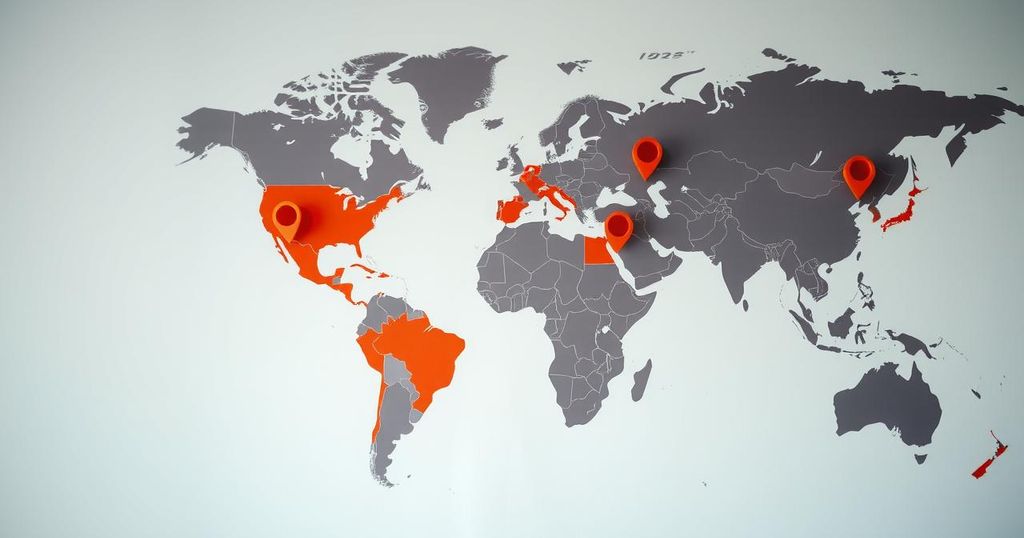The US has placed parts of Mexico on its “Do Not Travel” list due to rising security risks such as violent crime and cartel activity. This decision has major implications for the tourism sector, leading to suspended cruise stops and potential changes in flight routes. Travelers are advised to remain informed about safety conditions and consider alternate destinations.
Recent developments indicate that certain regions of Mexico have been added to the United States’ “Do Not Travel” list, placing them alongside nations such as Russia, Israel, Iran, and North Korea. This decision stems from increasing security risks, including rising incidents of violent crime, kidnapping, and cartel activity. As a result, US citizens are now cautioned against venturing into several Mexican states, which have been reported to experience high levels of violence and instability.
The implications of this advisory are significant. Major cruise lines, including Royal Caribbean, have suspended stops in high-risk areas of Mexico, while airlines may revise their travel routes for safety reasons. This situation poses a potential threat to Mexico’s tourism-driven economy, particularly in states with heightened violence, forcing travelers to reassess their destination choices and remain vigilant regarding evolving risks.
The US State Department’s warning about Mexico aligns it with other countries facing war and civil unrest. Specifically, the advisory highlights the dangers linked to cartel violence, gang activities, and escalating kidnappings, making certain areas exceptionally perilous for travelers. The US government named five states as particularly hazardous, where serious criminal activities like homicides and armed robberies are prevalent.
Similar advisories have been issued for various regions globally. For instance, travel to Israel is strongly discouraged due to ongoing military operations and increased terrorist threats, while Ukraine remains closely monitored due to the enduring conflict instigated by Russia’s invasion. The US also advises against travel to Iran, Iraq, Belarus, and North Korea, citing civil unrest, terrorism, and arbitrary detentions as key concerns.
As part of the advisory, US citizens are urged to take several precautions before traveling. They should consider checking the latest travel advisories, enrolling in the Smart Traveler Enrollment Program (STEP), and developing a robust exit strategy should conditions worsen. With parts of Mexico now deemed as risky as conflict-ridden countries, cautious travel planning is more crucial than ever.
The recent inclusion of certain areas of Mexico on the US “Do Not Travel” list reflects escalating concerns over safety due to organized crime and violence associated with drug cartels. The decision signifies a growing apprehension toward security not only in Mexico but also in several other countries worldwide. The impact on the tourism sector is expected to be considerable, necessitating adjustments from both travelers and the industry.
The US government’s latest advisory regarding travel to Mexico underscores serious safety concerns stemming from violent crime and cartel activity. As travelers evaluate their options, the necessity for heightened awareness and proactive safety measures becomes imperative. Given the shared status with nations facing unrest, this advisory serves as a critical reminder of the ongoing global security challenges.
Original Source: www.travelandtourworld.com




